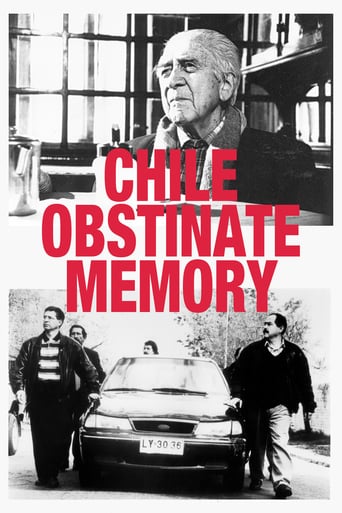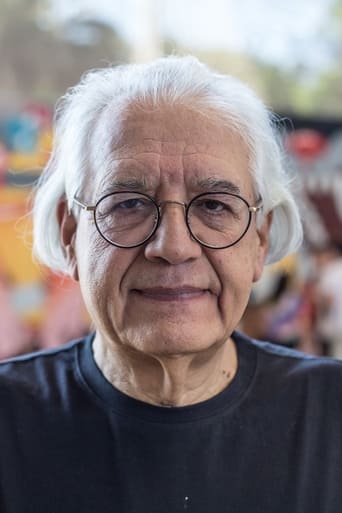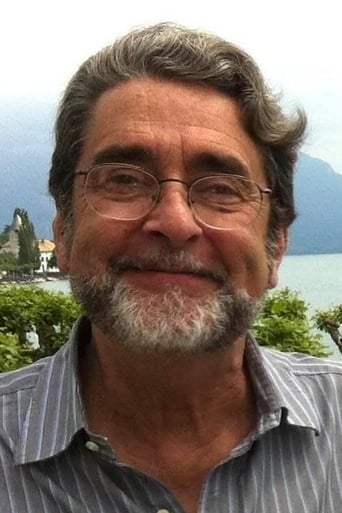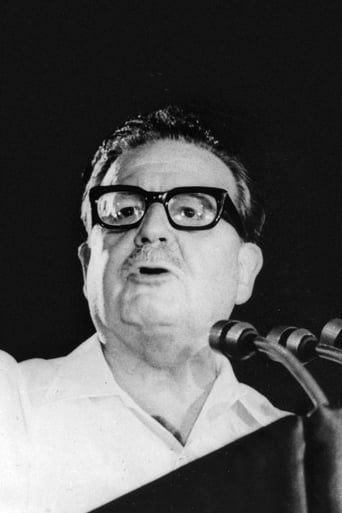After decades of fascist rule in Chile, Patricio Guzmán returns to his country to screen his documentary The Battle of Chile.


Similar titles
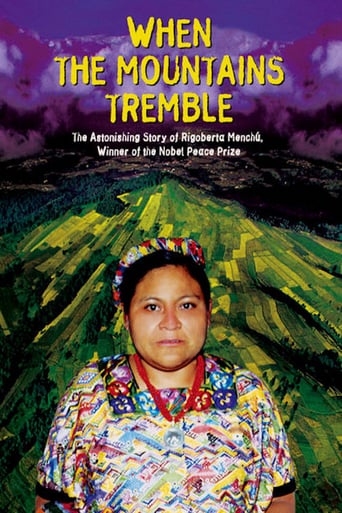
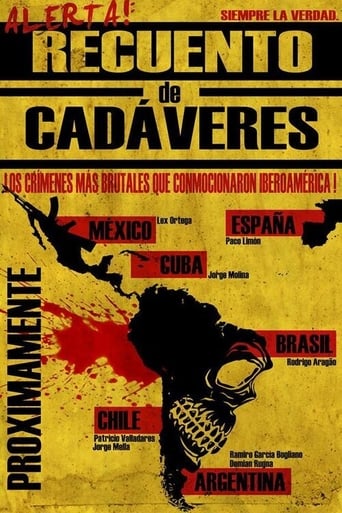
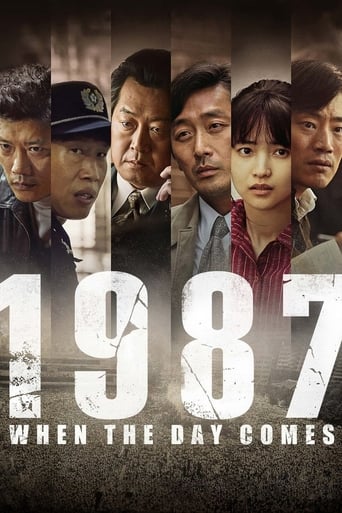
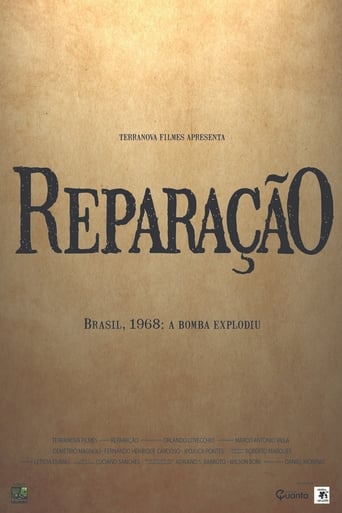
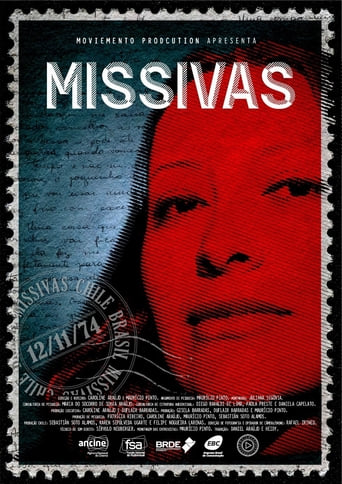
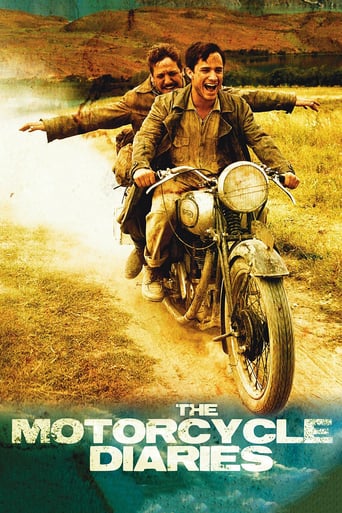

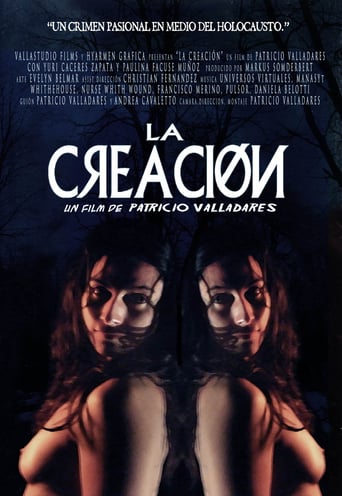
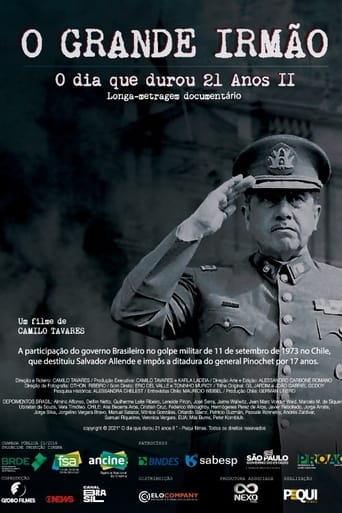

Reviews
I was only 9 years-old when President Allende was overthrown in a bloody coup. So, my recollection of the events is naturally VERY sketchy. But, since I taught history, I know a bit more about the events than the average person my age. My advice is unless you are very acquainted with this period in Chilean history, you should first read up on it or, better, see the three-part documentary made by Patricio Guzmán--"The Battle of Chile".This film is a follow-up to these three films. Almost two decades later, Guzmán returns to Chile to interview survivors on the side of President Allende as well as to show his documentaries to young audiences and film their reactions. If you think about it, things have changed significantly in this country, as years ago, he'd have simply 'disappeared' if he'd been caught doing this.The interviews are rather touching but the part I thought fascinating was the HUGE difference between the younger students (they appeared to be high school age) and the college and graduate students. The younger crowd seemed to think that Allende's forced removal was for the best--even if the methods were undemocratic and cruel. As they see it, life is now quite good in Chile and the Marxist system wouldn't have been viable in the long run. The older group was pretty much the opposite--much more nostalgic about the Leftist government and they focused more on the evil way that folks with this political bent were persecuted. Much of this could be because the older group had SOME recollection of the events but also because the younger group seemed to be far less emotional and a bit more pragmatic. I am NOT making a value judgment one way or the other--just making an observation.Overall, a decent film if you understand the events which they are discussing. That's because the documentary doesn't really explain the full story and doesn't try to. While decidedly pro-Left in its sentiments is evident, it does NOT ignore contrary opinions and gives you things to talk about and consider. Worth a look.
This pseudo documentary is just passable, but not that interesting. The people interviewed do have a point of view and it is Leftist, but they simply are not convincing, compelling, or even entertaining.One of the most damning statements the film included was the fact that very few had died to prevent a subjugation of a country's freedom; far fewer than ever in history. Actually, all of the students statements were more balanced than the protagonists' and the most honest part of the film.It's a biased documentary, but there is some interesting historical footage that helps flesh out the conditions of the time.
Having watched this film twice, I am compelled to say it cannot be fully understood without seeing the original and earlier film upon which it is based. The viewer must also have an opportunity to form an opinion as to how it relates to certain historical facts. Without that additional information, any comments rendered here become superficial.This documentary is about another, earlier documentary -- as seen through the eyes of a generation once removed from the events upon which the first documentary relied to advance its thesis. Got that? Good.Now imagine you know nothing about Chile except that it produces passably good wine. The first thing to do before watching this film is to read history, noting how Chile was at first a smallish colony of Spain attached to Argentina, its larger neighbor to the east, as well as to the more important colony of Peru on the north. Independence came at the start of the nineteenth century. Most inhabitants today are European in origin, including a very large component of Germans in the south. Native Americans are found in abundance in the large cities and in the north. Chile's history into the twentieth century paralleled to some extent that of Argentina, its erstwhile rival on the other side of the Andes. Wars were fought, capitalism thrived, and North American and European money poured into the country's mines and rich agricultural lands. A large social and economic underclass formed as the result of too little land to sustain any agrarian movement, and the gap between rich and poor was always wide.Enter socialism in 1936. By the 1960's, a kind of populist movement similar to (but not the same as) Peronism in Argentina threatened vested foreign and domestic interests. This movement resulted in the peaceful accession to the presidency of Salvador Allende Gossens in 1970. It was not long, however, before its more extreme nationalistic and communistic elements began expropriations and other questionable attacks on private property. Enter the Yankee CIA and the usual suspects from the Right. By 1973, a reactionary alliance of Chile's military and upper classes employing tactics of intrigue, subversion, and misinformation found enough support to attempt a brutal and successful coup d'etat against the Allende government. Almost by accident, film director Guzman was able to capture the "battle of Chile" on footage that was suppressed until the late 1990's, shown only abroad until he returned after fascism had been rooted out. "Chile, la memoria obstinada" is his 1997 effort to document reactions of today's Chileans to his earlier work. If you have read this far, you now know how to begin viewing the film in question. Pieces of the original "battle of Chile" are ugly reminders of what we would call today terrorism of brother against brother. Interviews of young and old provide contrasting emotions as young Chileans see the older film for the first time. It is at once powerful, yet of necessity incomplete, reportage. As a documentary, it succeeds where technique and development of singular strands of thought do not. One wishes there could be more, but when a life ends prematurely as the result of assassination or "disappearance," there is nothing left.The viewer must draw his own conclusions as to who were the good guys and who the bad guys in this sad story. You can guess by now where this reviewer comes down on that question.
Not only is the subject interesting but the way the movie has been directed too. The film is built around parallels between today (1997) and Salvador Allende's time in Chile (1970-1973), including Pinochet's coup d'état. We see many people, many places, then and now (Patricio Guzmán was a filmmaker in Chile at that time). We hear all the way Guzmán's uncle trying to play Beethoven's Moonlight Sonata with his 80-year-old fingers and his failing memory, which gives a special color to the whole film. We also hear many thoughtful reflections from interesting people about memory. The final part, where we can see students watching the documentary about Allende's time and the coup, and learn and reflect about the history of their own country, is very moving.One must say however that the way Allende's experience is presented is one-sided. People are correct when they say that Allende and his supporters had a dream about democracy and justice, but nowhere is there any hint that at the time of the coup, the country had been in a social and economic chaos for two years because of Allende's poor results as a government. Of course, that can't excuse Pinochet's regime, but it could have added a useful dimension to the whole story. Anyway, the movie is not an apology for Allende as much as a reflection about remembering painful personal and collective events after almost a quarter of a century.
